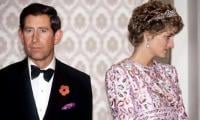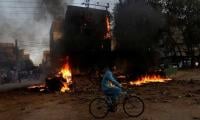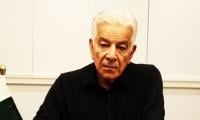ISLAMABAD: The availability of constitutional immunity to a lawmaker for his speech delivered in the Parliament will be interpreted for the first time by a court of law as ousted prime minister Nawaz Sharif has claimed exemption to his address to the National Assembly during the crisis over the Panama Papers disclosures.
“I don’t think that this question was ever previously interpreted by any court of Pakistan. When Nawaz Sharif has claimed the immunity, Article 66 may be conclusively elucidated by the Supreme Court,” prominent constitutional expert Wasim Sajjad told The News.
He said the accountability court’s findings, if any, on the issue of exemption will be impugned in the high court by an aggrieved party. The apex court will come into action on the same question after the high court decision.
The protection to the National Assembly speech was also claimed by the ex-premier’s lawyers during proceedings in the Panama case in the Supreme Court, which did not take any view on it in its main judgment. However, in his exhaustive ruling Justice Asif Saeed Khosa had dilated on it, which was not the verdict of the court for being a minority decision.
Article 66 says there shall be freedom of speech in Parliament and no member shall be liable to any proceedings in any court in respect of anything said or any vote given by him in Parliament, and no person shall be so liable in respect of the publication by or under the authority of Parliament of any report, paper, votes or proceedings. This provision shall apply to persons who have the right to speak in, and otherwise to take part in the proceedings of, Parliament as they apply to members.
Another legal expert said that the immunity as provided in the constitutional provision is unassailable and a contrary view is not possible. However, he said any superior court may interpret it otherwise saying that such protection is not available to certain kinds of speeches made in the Parliament.
The former prime minister has answered questions put by Accountability Court judge Arshad Malik under Section 342 of the Criminal Procedure Code (Cr.P.C.) in the ongoing trial of reference filed by the National Accountability Court (NAB) on the apex court direction contained in the Panama judgment. He requested the judge to exempt his 2016 speech from being used as evidence under Article 66, as the address was made on the information furnished to him by his son, Hussain.
“It is the requirement of the law to provide an opportunity to the accused to answer questions relating to the evidence presented against him. This is the right of the accused and for his benefit,” Wasim Sajjad said.
Nawaz Sharif, he said, can’t be cross-examined on his answers since his statement was not oath. Had it been under oath, he would have been cross-examined, the lawyer said, adding that the questions are prepared by the presiding judge, who may at times seek the assistance of the prosecution, the NAB in this case.
Section 342 says for the purpose of enabling the accused to explain any circumstances appearing in the evidence against him, the court may, at any stage of any inquiry or trial without previously warning the accused, put such questions to him as it considers necessary, and shall for this purpose question him generally on the case after the witnesses for the prosecution have been examined and before he is called on for his defence. The accused shall not render himself liable to punishment by refusing to answer such questions or by giving false answers to them; but the court may draw such inference from such refusal or answer as it thinks just. The answers given by the accused may be taken into consideration in such inquiry or trial, and put in evidence for or against him in any other inquiry into, or trial for, any other offence which such answers may tend to show he has committed.
Wasim Sajjad said the accused is informed in the questions all the material and evidence that has been presented against him and asked to give his side of the story. “If no question is asked about a particular aspect of the case, the court judgment can’t base any of its findings on such a query,” the lawyer said.
Due to breakdown, power was cut off in Mall Road, Jhikagali, Bhurban, Expressway and other areas
Demonstrators criticise introduction of a token system at the Kuntani border
He says bunkers would be demolished and weapons collected to restore peace to the area
Special Judge Central Shahrukh Arjumand conducts hearing at Adiala Jail on Friday
PN flotilla was led by Commander 14th Destroyer Squadron, Commodore Muhammad Umair
ATC Special Judge Amjad Ali Shah approves her bail until January 13







